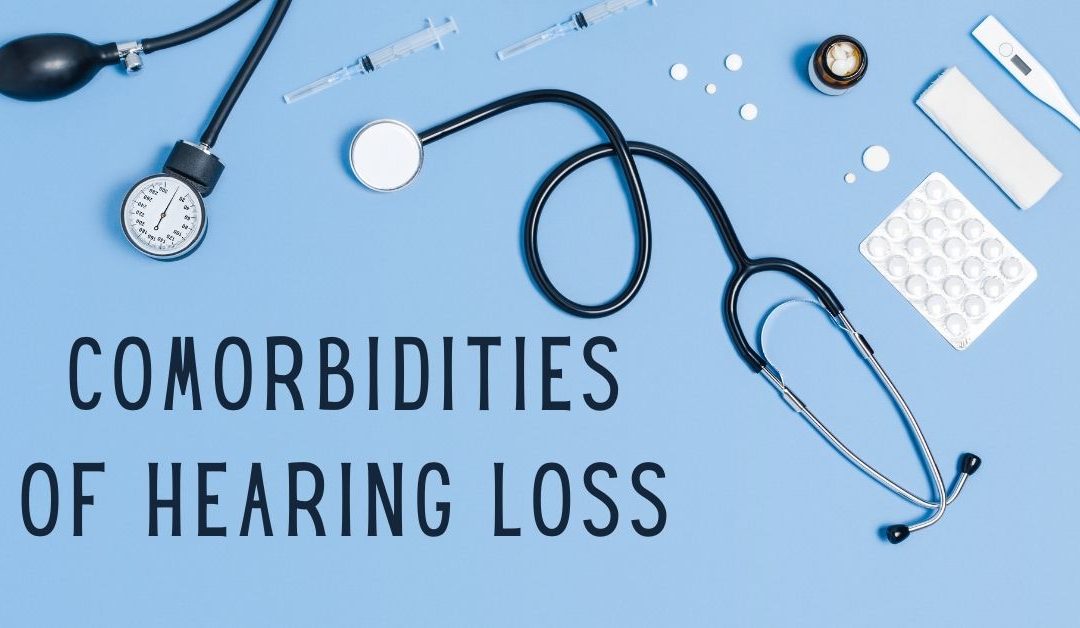Most people perceive their hearing loss as a condition that exists independent of other aspects of their health. After all, hearing loss is seldom accompanied by physical pain and seems disconnected from other systems in the body.
Unfortunately, nothing could be further from the truth. Our hearing is significantly tethered to other aspects of our health and wellbeing. Hearing loss is linked to a wide range of comorbidities – other chronic health conditions that coexist with hearing loss. While the presence of hearing loss can be an indicator of other health concerns, there is some good news – treating hearing loss can also lessen your risk for some of the associated comorbidities of hearing loss.
Depression
Hearing loss can take a significant toll on your quality of life. When conversations become difficult to understand, it puts limits on how we interact with others, even our loved ones.It becomes harder to keep up and easier to fall behind at work or in school. Additionally, communication problems caused by hearing loss can make it more difficult to enjoy activities and hobbies. All these factors contribute to an increased risk of depression as a comorbidity to hearing loss.
Multiple studies have found that the presence of hearing loss increases risk of depression by at least 50%. The risk of depression also increases the more severe the hearing loss. While under 5% of the population with normal hearing reports depressive symptoms, over 11% of people with hearing loss demonstrate signs of depression. Fortunately, it has also been found that treatment for hearing loss can help alleviate this risk of depression.
Isolation
Isolation is another comorbidity that is a significant risk for those with hearing loss. When our hearing is compromised it makes it more difficult to maintain closeness with our friends, family and loved ones. Hearing loss can also take the enjoyment out of our favorite activities, like concerts, parties, travel and sporting events, which can become too difficult to navigate with hearing loss.
Hearing loss has also been shown to increase loneliness and decrease mobility, all contributing to the risk of social isolation. Research has shown that hearing loss is linked to increased isolation, and isolation at younger ages, than normal hearing. Like depression, isolation can drastically decrease your quality of life, but treating hearing loss can help address the underlying issues of isolation as well.
Falling Accidents
Many people are surprised to learn that untreated hearing loss contributes to an increased incidence of falling accidents. While these two health concerns don’t immediately seem to have much in common, hearing loss contributes to balance and coordination problems in a very real way.
Hearing loss means that the mind has to scramble to piece together incomplete incoming information. Understanding speech becomes slower, less accurate and takes more “brain power”. This brain power has to come from somewhere- our mind pulls attention away from other tasks to help manage hearing loss. Among the cognitive tasks that may get shortchanged are balance and coordination, both critical for avoiding accidents and injuries.
By alleviating the mental strain hearing loss causes, using hearing aids can improve cognitive functioning and make more mental space for balance and coordination.
Dementia
One of the scariest common comorbidities for hearing loss is dementia. Similar to falling accidents, the link between hearing loss and incidence of dementia is linked to the cognitive toll hearing loss places on the mind. By reprioritizing cognitive tasks, untreated hearing loss may encourage and exacerbate the cognitive decline that is the hallmark of dementia.
Dementia risk is also linked to the degree of hearing loss present, with more severe degrees of hearing loss contributing to elevated risks of dementia. Dementia becomes three times as likely for individuals with untreated moderate hearing loss and nearly five times as likely for those with severe or profound hearing loss.
While using hearing aids cannot prevent dementia, there is encouraging research around treating hearing loss and dementia. Treating hearing loss with hearing aids has been shown to reduce risk of cognitive issues. Similarly, patients with dementia and hearing loss who began using hearing aids saw a significant improvement in their cognitive performance, indicating that untreated hearing loss can make cognitive confusion worse.


